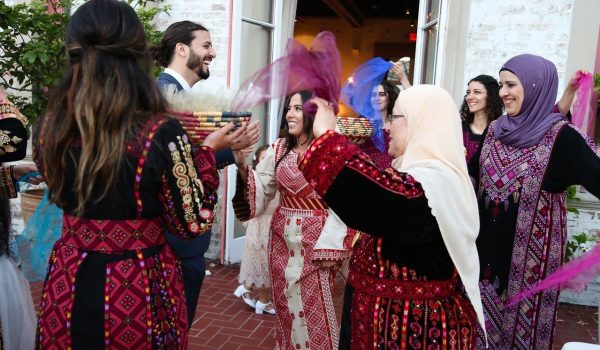Long before books or digital screens, stories were shared by firelight, under olive trees, or whispered between generations. In Palestine, folk tales have carried culture, history, and values from one heart to another. They’ve passed through grandmothers’ voices, traveled with refugees, and lived on in the imaginations of children. These tales aren’t just for entertainment—they hold memory, resistance, and deep connection to home.
As displacement and occupation continue to impact Palestinian life, folk tales serve as a thread that ties the past to the present. They remind people of who they are, where they come from, and what they carry. In a world that often tries to erase or rewrite their story, folk tales help Palestinians hold onto their identity.
Why These Stories Still Matter
- Folk tales preserve language, culture, and place names that are at risk of disappearing.
- They carry wisdom, humor, and values passed through generations.
- Stories create belonging and pride, especially for children growing up in exile.
- Telling and retelling keeps the Palestinian narrative alive in everyday life.
A Living Archive of Memory
Palestinian folk tales often start with a familiar phrase: “Kan ya ma kan,” meaning “Once upon a time.” But unlike fairy tales from other places, these stories are rooted in specific villages, landscapes, and ways of life.
There are tales about talking animals, clever girls, wise elders, and brave farmers. Many are full of humor and trickery—like Juha, the beloved fool who often outsmarts those in power. Others carry deep emotion, reflecting the hardships and hopes of everyday people.
These stories act like a living archive. They remember places that have been destroyed or renamed. They reflect customs, dialects, and expressions that carry the sound of the land. In this way, folk tales preserve more than just plot—they preserve a way of being.
Keeping Identity Alive Through Story
For children growing up in refugee camps or the diaspora, folk tales can be a bridge to Palestine. They offer pictures of village life, traditions, and relationships that may be unfamiliar—but deeply theirs.
When a grandmother tells her granddaughter the story of “The Girl Who Cried in the Garden,” she’s not just passing time. She’s building identity. The tale becomes a thread that connects the child to her people, even if she has never walked those streets or tasted those olives.
In classrooms, youth centers, and homes, folk tales help shape a sense of belonging. They give young Palestinians pride in their roots and a voice to hold onto in a noisy world.
Humor, Courage, and Resistance
Palestinian folk tales often mix laughter with struggle. The characters are bold, clever, and full of life. They resist injustice—not with swords, but with wit and courage. These traits are not accidental. They reflect the spirit of a people who have faced loss and displacement, yet continue to speak, sing, and tell stories.
A tale about a poor man tricking a greedy landlord might seem simple. But it speaks to power, survival, and justice. A story about a woman finding her lost family carries the pain of separation and the hope of reunion.
These stories offer a gentle but powerful way to process real-life challenges. They give shape to emotions that can be hard to express in daily life.
Women as Storytellers and Keepers of Culture
In many Palestinian homes, women are the storytellers. Mothers and grandmothers pass down tales while cooking, sewing, or putting children to sleep. Their voices carry not just the stories, but the warmth and rhythm of family.
Through storytelling, women have become cultural guardians. They’ve preserved songs, sayings, and stories that might have otherwise disappeared. Even when families were forced to flee, they carried these tales in their memory.
This role isn’t just about the past—it continues today. In refugee camps and urban neighborhoods, women lead storytelling sessions, literacy programs, and children’s book circles. Their voices continue to nurture identity in small but lasting ways.
From Oral Tradition to Written Word
Many Palestinian folk tales were passed down orally for centuries. But in recent decades, efforts have been made to write them down, translate them, and share them more widely.
Writers, educators, and researchers have worked to collect and publish these stories in books and anthologies. Some are now used in schools or adapted into plays, songs, and short films. This helps protect them from being forgotten and makes them accessible to younger generations.
But even as they’re written down, these tales still carry the energy of spoken word. They come alive when told—especially in dialect, with gestures, laughter, and dramatic pauses.
Telling Tales in the Modern World
While life has changed, the love of storytelling remains. Today, folk tales are shared not just by word of mouth, but through podcasts, social media, and community workshops.
Some youth programs teach children to retell traditional stories using art, theater, or animation. Others invite elders to share tales with students, creating intergenerational dialogue. These projects help keep the tradition alive while giving it new form.
Even in exile, folk tales create a kind of home. They offer comfort, connection, and a way to say: “This is who we are. This is what we remember.”
What These Stories Teach Us
Beyond cultural pride, folk tales teach values that matter every day. They speak of generosity, courage, cleverness, and kindness. They show how people help one another, challenge unfairness, and find joy in small things.
In a time when identity is under pressure, these stories give a sense of rootedness. They remind Palestinians—and anyone listening—that their history is rich, their voice matters, and their story is still being told.
Folk tales carry more than words. They carry the heart of a people. In Palestine, where loss and resilience often walk side by side, these stories continue to nourish identity, strengthen connection, and pass hope from one generation to the next.

